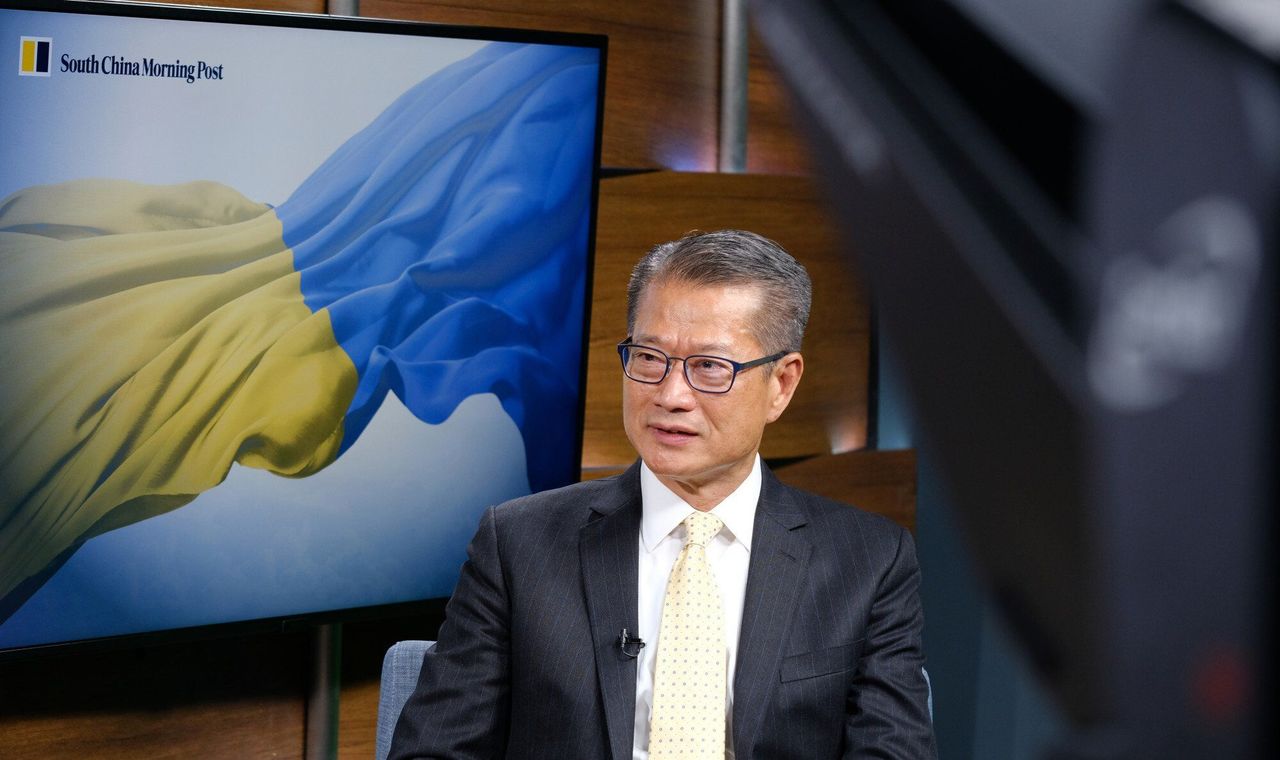Ahead of coming address in February, financial secretary has faced mounting calls to roll out fresh round of consumption vouchers or more sweeteners.
Hong Kong’s finance chief has said it will be a challenge to decide whether to target specific groups for benefits or distribute relief to the masses in the budget to be unveiled next month, with the city set to enjoy a much lower fiscal deficit than expected.
Financial Secretary Paul Chan Mo-po expressed the dilemma on his official blog on Sunday over formulating a relief package for his annual budget amid a fifth wave of coronavirus infections. Chan has faced mounting calls to roll out a fresh round of consumption vouchers and more sweeteners.
“If relief measures ‘strive to be precise’ and focus on a certain group of target audiences, it would cause backlash easily due to ‘differential treatment’. On the contrary, even if measures benefit the masses, it might be seen as providing insufficient support for the vulnerable groups,” he said.
Chan has been in consultation with stakeholders and lawmakers for two months to gauge views on the 2022-23 budget, expected to be announced on February 23.
 Hong Kong finance chief Paul Chan.
Hong Kong finance chief Paul Chan.
Considering the less-than-expected deficit for the 2021 financial year, all eyes are now on how the city government could make good use of its coffers to support businesses and the general public facing hardship under stringent Covid-19 control measures.
Hong Kong has extended bans on evening dine-in services and flights from high-risk countries until February 4, with the city not yet out of the woods from an Omicron-fuelled wave of infections.
Last Friday, Chief Executive Carrie Lam Cheng Yuet-ngor unveiled a fifth round of pandemic aid totalling HK$3.57 billion (US$457.7 million) for affected businesses.
On Sunday, Chan said the budget deficit for the past financial year would be far lower than the projected HK$101.6 billion because of increased income from land sales and stamp duties, as well as a robust economic recovery.
The government last year gave eligible residents HK$5,000 worth of e-vouchers each to spend locally. Chan said he noted calls to issue a fresh round of vouchers to residents to accelerate economic recovery.
Chan said there were suggestions that public resources should be better targeted, given the weak consumer sentiment amid the pandemic.
He added that while some people might be hoping for another round of one-off sweeteners, others had argued that tax and rate rebates could only benefit those with higher income and more assets, resulting in “unequal distribution”.
“We will need to strive for a better balance, better explanation, and people’s understanding to achieve satisfactory results within a range that is acceptable to everyone,” he said.
Without specifying measures, the financial secretary pledged to review relevant proposals among policy bureaus to “break through certain constraints of implementation”.
Simon Lee Siu-po, an academic with the Asia-Pacific Institute of Business at Chinese University, argued the relief package should contain a basket of measures that covered both ordinary residents and targeted groups, as the latest outbreak had lasted longer than expected.
Lee suggested the government target employees and businesses not covered in previous rounds of relief and provide support in the form of short-term relief grants. Asked whether the government should issue another round of consumption vouchers, he said citywide cash handouts worth HK$3,000 could also stimulate the economy.















